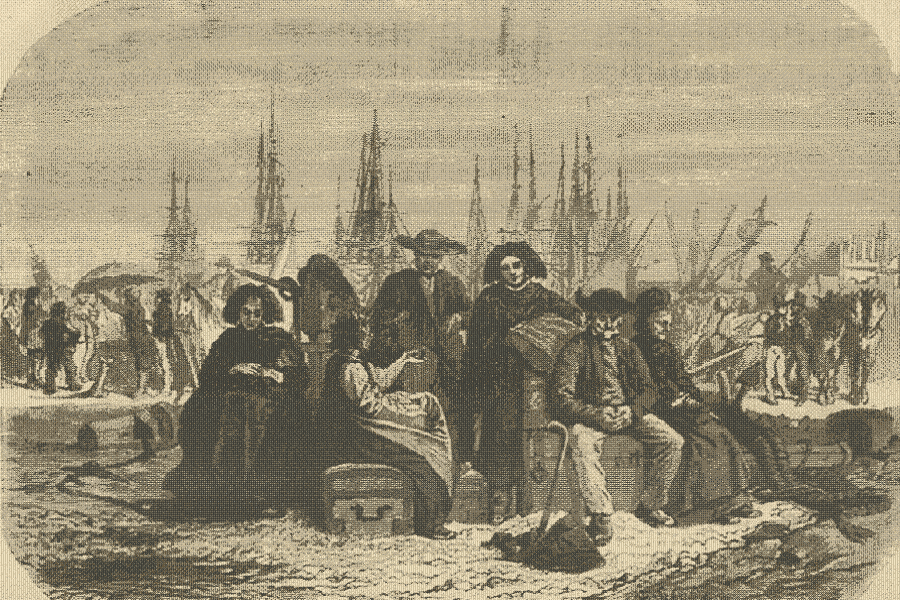
Alien and Sedition Acts (1798)
The Alien and Sedition Acts were four pieces of legislation passed amid fear of war with France. Collectively, the acts were understood to be, at least in part, politically motivated to target immigrants for their support of the Democratic-Republican Party, which opposed President John Adams’ Federalist Party. The fours pieces of legislation that comprised the Alien and Sedition Acts included:
- The Naturalization Act of 1798, which lengthened the residency requirement for citizenship to 14 years.
- An Act Concerning Aliens, informally known as the Alien Friends Act, gave the president the authority to deport any non-citizen “as he shall judge dangerous to the peace and safety of the United States”.
- An Act Respecting Alien Enemies authorized the president, during times of war or threats of invasion, to arrest and detain or deport all males over 13 years old who were not born in the US and had not yet become citizens.
- An Act for the Punishment of Certain Crimes Against the United States, also known as the Sedition Act, made it a crime to “write, print, utter or publish” anything critical of the government, whether or not the criticism be accurate or based on evidence.
The legislation was heavily criticized and set off a backlash against the Federalists that resulted in Thomas Jefferson’s defeat of Adams’ bid for reelection in 1800. Under Jefferson, the acts were either repealed or allowed to expire.

